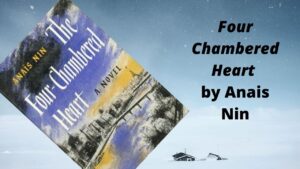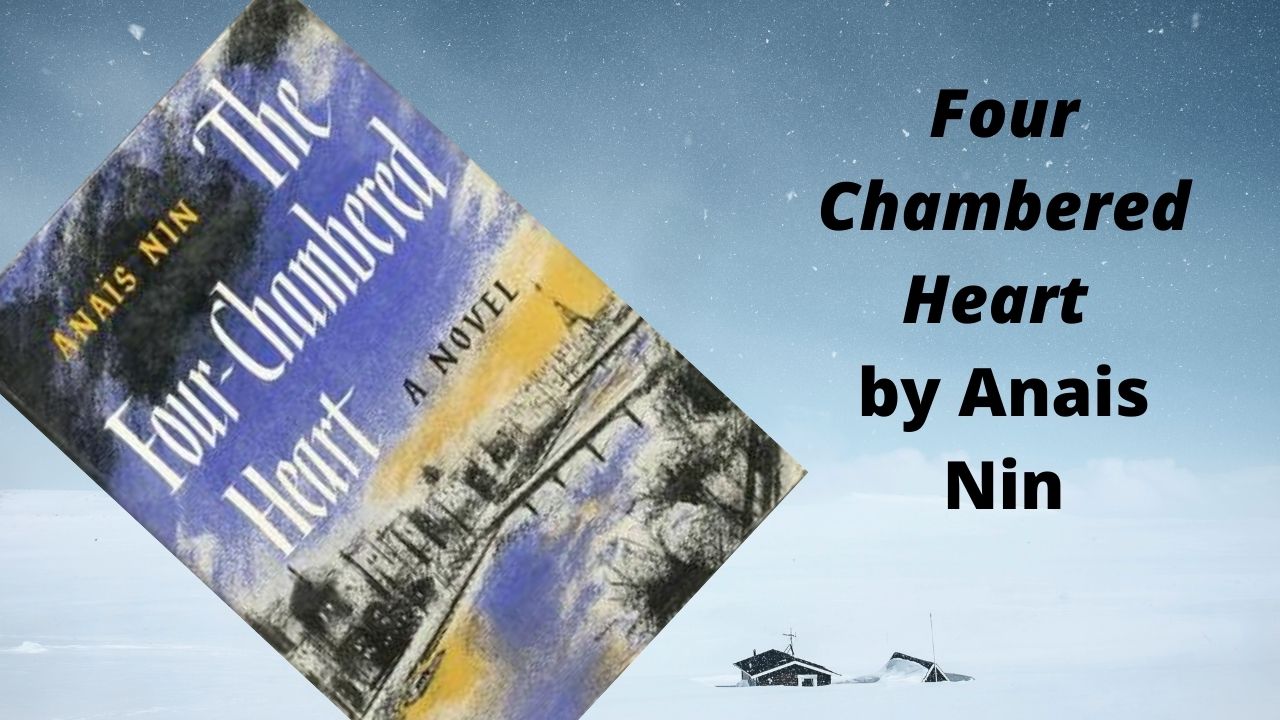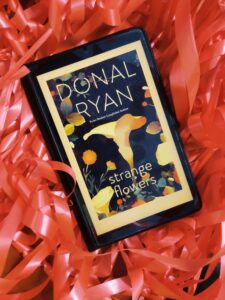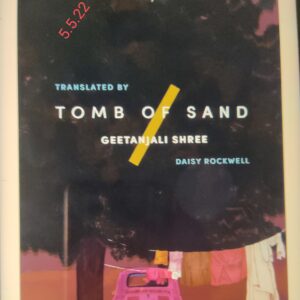The Four Chambered Heart by Anais Nin
Book: The Four Chambered Heart
Author: Anais Nin
Publication: Swallow Pr
Pages:182
Price: Click the link
“But love, the great narcotic, was the hothouse in which all the selves burst into their fullest bloom…
love the great narcotic was the revealer in the alchemist’s bottle rendering visible the most untraceable substances
love the great narcotic was the agent provocateur exposing all the secret selves to daylight
love the great narcotic-lined fingertips with clairvoyance
pumped iridescence into the lungs for transcendental x-rays.”
Introduction:
Before talking about the book or anything related to the book I want to share what prompted me to read the book. It was Janice Pariat’s that I planned to venture into. While taking little whereabouts regarding the author and the book on Google, I came to know about this book. They both are autobiographical and unfurl the life of a young woman and her journey through the alleys of love and loss.
The Four Chambered Heart (1950) is an autobiographical novel by French-American novelist Anais Nin.
She wrote many journals and dissertations on eminent writers and letters.
Her significant novels are:
House of Incest, Winter of Artifice, Cities of the Interior, Collages etc. Her short story collections are Under a Glass Bell, Delta of Venus, Little Birds etc. I feel interested to read them one after another after finishing this one.
The Four Chambered Heart is based on Nin’s own life tragedy…her destructive love relationship with Gonzalo More, a Peruvian poet.

The Nine Chambered Heart
Djuna is the alter-ego of Nin. In this novel, Djuna fell in love with Rango, a guitarist and became entangled in his chaotic life.
“Toward this ambulant Rango, Djuna leaned to catch all that his music contained, and her ear detected the presence of this unattainable island of joy which she pursued, which she had glimpsed at the party she had never attended but watched from her window as a girl. And like some lost voyager in a desert, she leaned more and more eagerly toward this musical mirage of pleasure never known to her, the pleasure of freedom…”
She took Rango as the other name for freedom. But Rango’s life is in total bondage, entangled with his former wife Zora who is ill with mental disbalance, and hypochondria. She brought books on illness from Library and marked the lines in red when she felt syndromes were perfect for herself. She used her illness as her insanity and forced the others to suck in it. When Djuan met Zora in their house she discerned the shackled soul of Rango.
“The windows of the house were long and narrow. They seemed barred. She could not bear yet to see how he had been captured, tamed, caged, by what circumstances, by whom.”
Rango loved Djuna and they spent their time at night on a swaying barge…But their passionate love affair came to a halt and faced trouble when Zora came to know about them. Though apparently, she feigned relief and happiness at the presence of Djuna in Rango’s life she started manipulating Rango into the excuse of her illness deterring their rendezvous and panicking them in trouble.
“Zora had mysteriously won all the battles; Rango and Djuna could never spend a whole night together.”
Djuna recognized this duplicity of her character but could not make Rango acknowledge that. Rango was blind…Rango was mad…Djuan was also blind to Rango’s love…Djuan was also mad.
“She will laugh when he refuses to see Zora’s madness because it was like her refusal to see his madness, his impersonations, his fiction, his illusions…”
Djuna felt devastated, angry and helpless at Zora’s control and power over Rango. Her deep desire i.e. every woman’s desire to be the only righteous entity in a man’s heart crush every time. But Rango refused to understand.
In her tremendous self-effacing love for Rango, she became the victim of the same tragedy. Her pain, her sufferings, and her sacrifices alienated her from Rango’s blind responsibility to Zora. Rango could not understand that. This lack of understanding on the part of Rango made her life more miserable.
Djuna became the goat in the hecatomb of the triumvirate- Zora, Rango, Djuna.
“Suddenly Djuna looked down at her coffee and her eyes filled with stinging tears; the tears of irony burn the skin more fiercely. She wept because she had aroused in Rango the desire to serve a purpose which was not hers, to live now for others when already he lived for Zora and had so little to give her of himself. She wept because they were so close in that earthy darkness, close in the magnetic pull between their skins, their hair, their bodies, and yet their dreams never touched at any point, their vision of life, their attitudes. She wept over the many dislocations of life, forbidding the absolute unity.”








